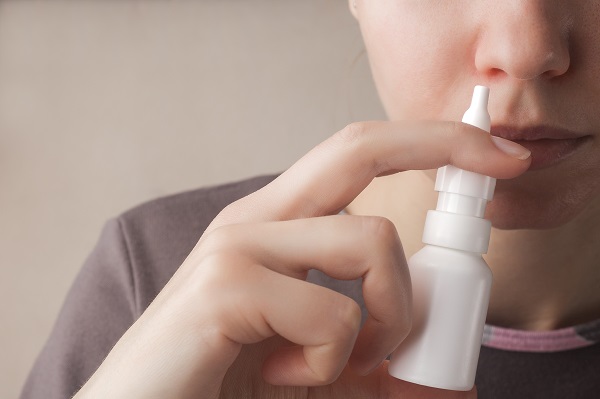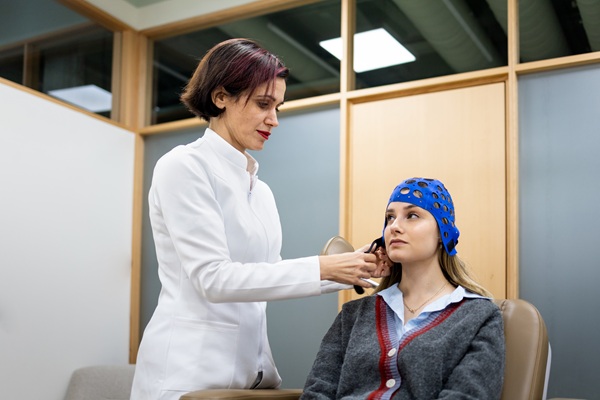How Is Nasal Esketamine Used to Treat Depression?

Many health care providers recommend Nasal Esketamine spray for the management of treatment-resistant depression (TRD). This depression is resistant to other treatments. You might have TRD if you have been treated for depression but your symptoms have not improved. But you should not lose hope. There are many other approaches that your health care provider may suggest that can be beneficial.
Nasal Esketamine for depression
Many people feel sad or hopeless from time to time. This is not unusual and it is a natural part of life. But for people suffering from depression, these feelings can become not only intense but also long-lasting. This can affect a person’s qualify of life. It can lead to problems at home, work and school.
Depression is often treated with a combination of antidepressant medication and some form of therapy. For some, antidepressants provide adequate relief on their own. While antidepressants help many people, they do not improve symptoms for some people with depression. Some patients only notice a partial improvement in depression symptoms.
How Nasal Esketamine is used
Esketamine is a nasal spray that is used with an oral antidepressant to treat depression. A person has to take a dose of the medicine under the supervision of a health care provider in a medical facility. Esketamine works by changing the activity of particular natural substances in a person’s brain. It comes as a solution or liquid to spray into the nose.
Every nasal spray device provides two sprays, one for each nostril. A health care provider will determine how many devices a patient should use depending on the dose. Esketamine usually causes nausea and vomiting. A person should not eat for at least two hours before using it. Not drinking liquid at least 30 minutes before using the medicine is also recommended.
Other ways to manage depression
There are other things people can do to manage depression while using esketamine nasal spray. Sometimes, some form of therapy may be included in a patient’s treatment plan. Lifestyle changes can also help people with depression. Exercise, better sleep and dietary changes can improve depression symptoms.
Who should avoid taking it?
A person who is allergic to esketamine or ketamine should not use this medicine. It is not recommended for a person with a blood vessel disorder that affects the brain, heart, stomach, chest or arms and legs. It is also not suitable for a person with a history of aneurysm or bleeding in the brain. The same goes for a person who has an abnormal connection between the arteries and veins. This condition is called an arteriovenous malformation.
Takeaway
Nasal Esketamine can be prescribed to people with depression who have tried and received no benefit from two or more antidepressant treatments. More people are using it because of its benefits. But this medicine is not recommended for everyone. People with certain conditions are not supposed to use it. A person should ask a health care provider if it is a good option. If you have any questions about this medicine, get in touch with your psychiatrist.
Get more information here: https://futurepsychsolutions.com or call Future Psych Solutions at (803) 335-5232
Check out what others are saying about our services on Yelp: Read our Yelp reviews.
Recent Posts
Mental health plays a critical role in overall well-being, influencing thought patterns, emotional stability, and behavior. For those experiencing persistent challenges, a formal diagnosis can provide clarity and a structured approach to healing. With guidance from a psychiatrist, individuals can better understand their condition and begin a path toward long-term mental wellness.A mental health diagnosis…
Are you looking for a TMS doctor? A TMS doctor is one that offers Transcranial magnetic stimulation to treat patients with major depressive disorder, which is also called MDD or clinical depression. Every TMS doctor utilizes their own method of treatment and many practices under other titles such as that of a psychiatrist. Learning more…
Post-traumatic stress disorder (PTSD) is a mental health condition that can develop after experiencing or witnessing a traumatic event. PTSD treatment aims to reduce symptoms and help people function better in their daily lives. It also focuses on improving their overall health and well-being. PTSD often causes anxiety, flashbacks, and emotional distress, making effective treatment…
Everyone experiences occasional anxiety, but an anxiety disorder involves persistent, excessive worry and physical symptoms that can disrupt daily routines, relationships, and overall well-being. If left untreated, these symptoms can intensify, impacting mental and physical health. Seeking help from a psychiatrist can be a significant first step toward effectively managing anxiety disorder symptoms and getting…


